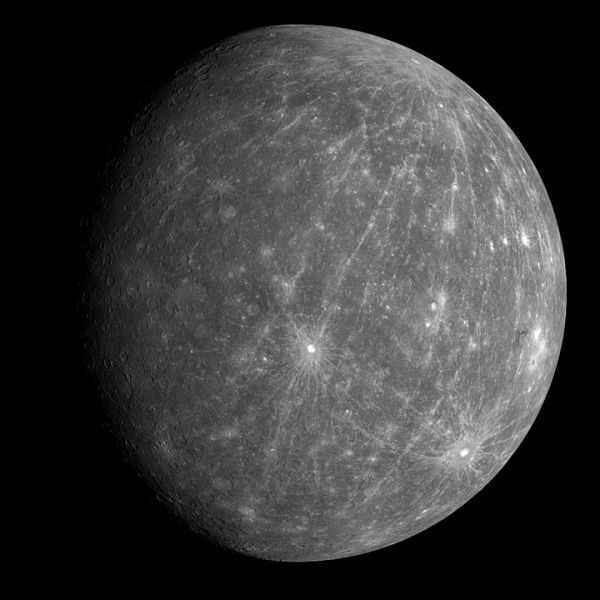Scientists have long known that Earth and Mercury have metallic cores. Like Earth, Mercury’s outer core is composed of liquid metal, but there have only been hints that Mercury’s innermost core is solid. Now, in a new study, scientists report evidence that Mercury’s inner core is indeed solid and that it is very nearly the same size as Earth’s solid inner core.
Some scientists compare Mercury to a cannonball because its metal core fills nearly 85 percent of the volume of the planet. This large core — huge compared to the other rocky planets in our solar system — has long been one of the most intriguing mysteries about Mercury. Scientists had also wondered whether Mercury might have a solid inner core.
The findings of Mercury’s solid inner core, published in AGU’s journal Geophysical Research Letters, help scientists better understand Mercury but also offer clues about how the solar system formed and how rocky planets change over time.
“Mercury’s interior is still active, due to the molten core that powers the planet’s weak magnetic field, relative to Earth’s,” said Antonio Genova, an assistant professor at Sapienza University of Rome who led the research while at NASA Goddard Space Flight Center in Greenbelt, Maryland. “Mercury’s interior has cooled more rapidly than our planet’s. Mercury may help us predict how Earth’s magnetic field will change as the core cools.”
Read more at American Geophysical Union
Photo Credit: WikiImages via Pixabay


